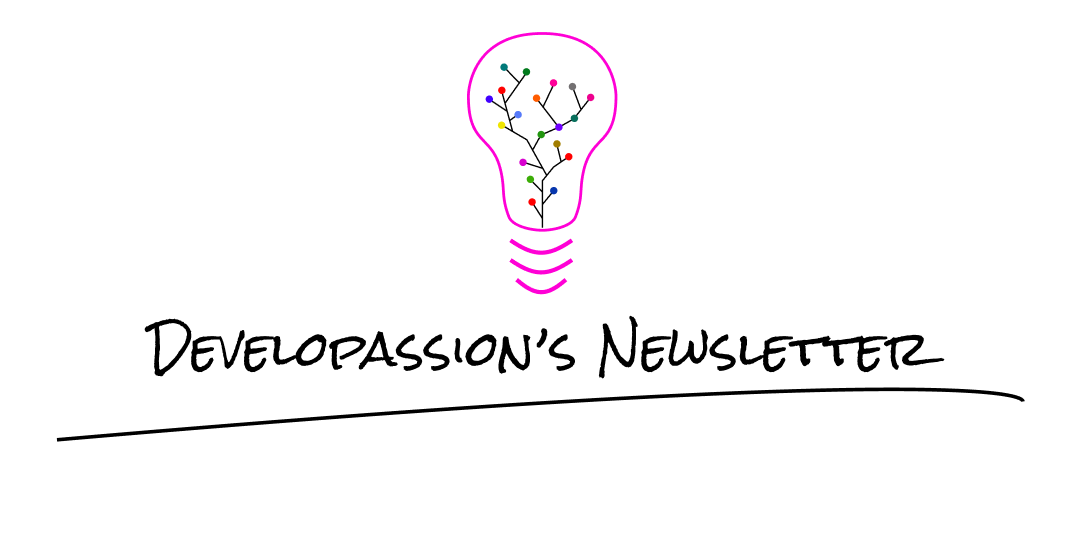|
In this article, I want to discuss the core elements of Personal Organization. Do you feel disorganized? Overwhelmed? Lost? Drowned in a mess? Do you regularly forget tasks? Do you miss your deadlines? Do you lose your files? If any of those ring a bell, then you may need to read this! IntroductionI have already discussed the reasons why you need a Personal Organization system. Here, I will focus on the key things that you need to be at least somewhat organized. Personal Organization is a skill, and like most skills, it can be learned. It's not about nature vs nurture. It may be more natural for some people, but it can be learned. Of course, learning always requires curiosity, practice, trial and error. This post is NOT about productivity per se, and it's not about knowing what matters to you (i.e., having clarity of intent and/or purpose). I just want to focus on what you need to be organized. That tools are secondary in all this. Yes, they can help, but they’re just means to an end. Moreover, in general, most of what matters works across a variety of tools. Focusing on tooling and thinking that you’re making progress is misguided (at best). There’s a lot of procrastination in disguise around Personal Organization and Productivity systems. Note that this content will be part of the Knowledge Worker Kit, in which we explore Personal Organization, Productivity, Personal Knowledge Management, and much more!
Knowledge Worker Kit and community (BETA)
Who is this for?You are a Knowledge Worker or Lifelong LearnerYou feel disorganized, unproductive, or overwhelmedYou don’t know how to go to the next levelYou want to learn from someone who’s always on top of thingsI have a proven track record of delivering at work and with my side projects. I have worked as a software developer, team leader, project manager, IT architect, information management specialist, CTO, founder, coach, and solopreneur. I have also written and published 3 books, 300+ articles, courses, YouTube videos, digital products, manage communities, and more! And I did it all with a busy life and kids. My personal system works and helps me achieve my goals consistently.You want a solid system that scalesBeing a Knowledge Worker today is much more challenging than it ever was. Getting started ain’t easy, and there are many traps to fall into. Spare yourself some time and benefit from my experience and battle-tested system. I’ll share everything I know with you: my approach, my systems, my routines, templates, guidance, and more! My mission is to help you avoid the pitfalls of Knowledge Work and empower you through technology.After you finish exploring the guide, you’ll have:Clarity in your life and an obvious path forwardSolid habits, routines, and systemsClear ideas about how to “manage” your careerAn effective approach to learning new thingsSolid knowledge management and personal organization systemsKnowledge about how to organize, plan, control, and manage projects (large and small!)A toolkit to prioritize workA system to manage your tasks at scaleEffective means to focus your attention and manage your timeWork methods that will propel your career forwardWhat is this?I’ve been passionate about information, knowledge management, learning, personal organization, PKM, and productivity for more than 20 years. As an author, blogger, knowledge worker, entrepreneur, coach, and father of 3 kids, I needed effective solutions to be and stay organized, focused, and productive. The Knowledge Worker Kit includes everything I know about these topics, and more!What’s included?WARNING: The Knowledge Worker Kit is in BETA. The content will be added and expanded over time. If you buy access now, you’ll benefit from a lower price. The product is already available so that I can find early adopters and get as much feedback as possible in order to make it great for everyone.If you buy access to the Knowledge Worker Kit, you’ll get:The user guideAll the templates and guidanceLifetime access to the private community for support and knowledge sharingLifetime access to all community events (meetups, workshops, knowledge-sharing sessions, invited talks, etc)Ask Me Anything (AMA) Q&As with meIn addition, you’ll also get free access to all future updates. Over time, I’ll continue expanding the kit with new ideas, techniques, systems, templates, and more!What’s in the user guide?The user guide is a growing and evergreen knowledge base. It includes detailed explanations covering a wide range of topics that all Knowledge workers should explore:01. Clarity: values, behaviors, goals, non-goals, priorities, and intentions02. Habits, routines, systems, processes and methods03. Career Management and Anticipation04. Learning05. Projects Knowledge Management and Journaling06. Projects Organization07. Planning and Prioritization08. Task Management09. Focus, Attention, Time Management and Action10. Personal Development11. Control: periodic reviews, progress tracking, course-adjustment12. Personal Organization13. WorkThe user guide is a Notion space including tons of articles, how-to guides, guidance, and links to useful templates and resources.You will get to explore the content at your own pace, and to focus on what is useful to you right now, as each section is actionable on its own.Evergreen ContentThe Knowledge Worker Toolkit is going to expand over time. Day after day, week after week. Buy it once, and you will have access to all future updates.Overview of the main topics01. ClarityThis part explores key elements that help bring clarity to one’s life:NeedsValuesPrinciplesGoalsPrioritiesEach of those is important to know what matters, what has value, and what to focus on.02. Habits, routines, systems, processes and methodsThis part explores the base elements of productivity systems:Habits and routinesSystems, processes, and methodsThose are key to building an “effortless” life, requiring as little willpower/motivation as possible to make things happen.03. Career Management and AnticipationThis part focuses on career management: its importance, your responsibility, the mindset you need to acquire, and all the related ideas.04. LearningThis part shares ideas about how to…Learn how you best learnLearn more effectivelyExplore new topicsResearchFilter informationLeverage AI and LLMs…05. Personal Knowledge Management (PKM) and JournalingThis part explores how to collect, organize, and link all your knowledge and information. It explores the main concepts of PKM, note-taking, note-making, tools of the trade, and structures/tips to help you keep everything useful, manageable, and maintainable as your knowledge base grows.It also introduces journaling and how to approach it to support your whole life.06. Projects OrganizationThis part focuses on how to organize projects and their information in a way that enables you and your teams to make focused progress.It shares ideas about how to organize project information, how to document projects, how to organize backlogs, etc.07. Planning and PrioritizationThis part focuses on how to plan projects and tasks, how to deal with deadlines, and how to prioritize work using various methods.08. Task ManagementThis part focuses on task management for personal and professional projects. It explores ways to keep tasks under control, how to organize personal work, and how to make the link between your different backlogs and your day-to-day life.09. Focus, Attention, Time Management and ActionThis part focuses on how to make things happen every single day, regardless of whatever is going on in your life. It’s all about techniques, tips & tricks, and tools to help you better manage your time, focus, and attention in order to ACT.10. Personal DevelopmentThis part explores important aspects of Personal Development that can make a big difference in a Knowledge Worker’s life. A sane mind in a sane body.11. ControlThis part is dedicated to control. How to control your progress, your trajectory, your projects, etc. And also, how to adjust course when things don’t go as expected.12. Personal OrganizationThis part helps better organize yourself and your information. It shares “zen” techniques you can use to remain organized, independently of how much information you have to juggle with.13. WorkThis part is all about WORK. How to do the work, how to improve your attitude, your results, and your recognition. It also dives into how to better collaborate with others to achieve your goals and those of your company/group.
Gumroad
What are the core elements of a Personal Organization system?This first part is based on a previous edition of my newsletter, When thinking about Personal Organization, there are different dimensions you can consider: - Habits, routines, systems, processes and methods: everything you can rely on to stay organized and productive
- Personal Knowledge Management (PKM) and Journaling: organizing ideas, thoughts, knowledge, inspiration, research and notes, realizations, gratitude, etc
- Projects Organization: organizing your projects and their related information and data
- Planning and Prioritization: surfacing and keeping track of plans and priorities in order to know what to focus on
- Task Management: organizing tasks, decomposing work into manageable units and decluttering your mind
- Focus, Attention, Time Management and Action: organizing your time, and removing barriers to progress
- Control: tracking progress and adjusting course if needed
- Work: organizing your work and being amazing collaborators
- Information and Data Management: organizing, structuring and managing tons of data and information
It's all of that, intertwined, and then some more. I feel very strongly that all Knowledge Workers should invest some time in designing their own Personal Organization system. It doesn't need to be (actually shouldn't be!) very complex, but it should exist, and it should include elements from all those dimensions: - Without habits, routines and systems, you can't be consistent and efficient
- Without PKM and journaling, you don't manage your knowledge and forget tons of things all the time. You also forget to celebrate your wins
- Without projects organization, you quickly get lost and fail to communicate important information to relevant stakeholders
- Without planning and prioritization, you're like a beheaded chicken running around
- Without proper task management, you just work on whatever you think about, which may be a good or bad thing...
- Without ways to focus your attention, manage your time and act, you get distracted, and waste time. You don't make meaningful progress on a regular basis
- Without control systems, you don't really know where you stand, lack clarity and confidence about your progress
- Without effective and "modern" work methods and techniques, you're like a dinosaur trying to use LLMs without understanding their purpose
- Without Information and Data Management techniques and systems, you crawl under the weight of information overload, and you're bound to remain overwhelmed
While tools are secondary, there is a vital or "minimum viable" set you need to organize yourself. The choice itself isn't that important, though. What matters is choosing those that work for you. Use as few tools as possible, and only consider adding new ones to your toolbox if you can't avoid it. You probably need fewer features than you imagine. So what is the "minimum viable" set of tools you need? - An email inbox
- A calendar to plan meetings, appointments, book time slots, and set reminders
- A task management tool to keep track of everything
- A knowledge management tool to think, journal, capture, and organize all your thoughts, ideas, inspiration, and knowledge
- A storage system to organize your files
- (optionally) a system to keep track of the groceries you need
Those tools are the bare minimum to allow yourself to forget things: - When I add an appointment to my calendar, I know I'll get notifications about it, so I can forget about it until the time comes
- When I add a task to my daily note, I know it'll resurface later on, and I'll know what I need to get done
- When I record what I did during a particular day in my daily note, I know it'll stay there forever
- When I write a note about something on my mind, I know it'll stay there forever
- When I put a file in my storage system, I know it'll stay there forever
In all cases it's the same story. And that's the key point: those tools are much more reliable than my flawed brain will ever be, whether I perfectly organize everything or not. I can rely on those tools, and let go. I can forget and free my mind for other things. I personally use: I use few tools by design, and I try to keep it that way. For instance, I previously used Trello for task management, but realized that I didn't care about all the bells and whistles it offered. All I needed was basic task management, that I could easily achieve using Obsidian, my daily notes and the Kanban plugin. Personal Organization 101Assuming that you have your baseline of tools, what should you do? The basics are pretty straightforward: - If you think about something you need to do, add it to your task management system. The basic organization can be as simple as a few columns:
- Today
- This Week
- This Month
- This Year
- Backlog
- With that, you can already organize a LOT of tasks
- If a task should take less than two minutes, do it right away (Getting Things Done method of David Allen)
- If you must go somewhere or do something at a certain date/time, add it to your calendar, and make sure to add reminders and enable notifications on your computer/smartphone
- If there are recurring events, create those in your calendars (e.g., birthdays, reminders to send invoices, etc)
- During the day, keep a daily note open to keep track of
- What you want to do
- What you have accomplished
- What you have in mind, your ideas
- What you have learned, found interesting, etc
- If you're on the go, then try to take something you can use to take notes. If you can't or won't, use your phone and send yourself a mail with the information.
- Whenever possible, convert anything analog into digital. And make sure to clean up your mailbox
- Put a basic organization system in place, and try to reuse the same structure across tools. It doesn't have to be complicated (e.g., Family, Work, Project A, etc). In most cases, the PARA method works great and scales really well
- Regroup as many of your files as you can in a single storage system
- If you receive or create important files you need to keep for more than a day, store those in your system
- Take some time once in a while to clean up your mess. All your systems should remain organized (not perfectly!)
- For E-mail, this means leaning towards inbox zero
- For Calendars, it means cleaning up bogus events/reminders/tasks
- For Task Management, it means removing done/outdated tasks
- For Knowledge Management it means creating atomic notes, connecting ideas together, tagging notes, managing knowledge through time, updating Maps of Content, etc
- For storage systems it means making sure all your files are where they belong, that your "Downloads" and "My Documents" folders are not messy, etc
- To perform this regularly, you can include a dedicated task as part of your periodic reviews
The central theme in all the above is defining one place for everything and storing everything in its place (i.e., organizing a minimum), and allowing yourself to forget. The more you can forget, the better. And that's about it. Seriously! This is not as hard as it may sound. And it all starts with basic systems. No need to overengineer and automate everything from the get go. Of course there are more advanced ideas, techniques and methods. Many things can be automated, improved with AI, LLMs and such. But ignore all that for now. Start small and keep things simple for as long as you can. Once you get to the point where it all feels unmanageable, then maybe it'll be time to invest a bit more time to better define and improve your Personal Organization system. The one thing I recommend to explore in the beginning is Personal Knowledge Management. You wouldn't believe how impactful it can be in one's life. Read some of my articles on the topic to better understand the underlying ideas. Also, do consider journaling, performing periodic reviews, and designing your own systems:
There’s a lot more to journaling than what most people think
There’s a lot more to journaling than what most people think... I’ve been journaling for a number of years, and it has helped me tremendously! Here’s why…
Sébastien Dubois
•Sebastien Dubois
Ready to get to the next level?If so, then check out the Knowledge Worker Kit, the Obsidian Starter Kit, the Obsidian Starter Course, the PKM Library, a PKM coaching session with me, my collection of books about software development and the IT Concepts Wall 🔥.
If you want to discuss, then don't hesitate to join the Personal Knowledge Management community or the Software Crafters community. About SébastienHello everyone! I'm Sébastien Dubois (you can follow me on Twitter 🐦). I'm an author, founder, and CTO. I write books and articles about software development & IT, personal knowledge management, personal organization, and productivity. I also craft lovely digital products 🚀
If you've enjoyed this article and want to read more like this, then become a member.
|



